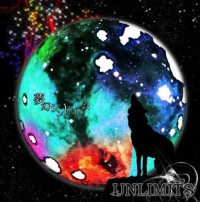
UNLIMITS
Mugen Shindoroomu (2008)
robalobadob
Mugen Shindoroomu (translated from Japanese: Fantasy Syndrome) is the first full-length record by a band called UNLIMITS. They are, as you can probably guess from the album's name, a Japanese band. They are a female-fronted pop-punk band -- think Paramore mixed with More Betterness-era No Use for a Name and the harmonies of Tegan and Sara. They stand out from a lot of the music that I've come across lately because they are easily one of the most melodic…and they sing in Japanese.
On my first cursory listen, I thought they were just alright and that I could probably take it or leave it. But then I found myself coming back to this album again and again. It's surprisingly catchy, especially considering I can't understand the language. Structurally, it's also a really well-assembled album, though it does fall into some of the standard traps of the genre.
The album opens with the song "Furanjia," which features a very brief introduction that consists of clean, picked guitar and soft singing that quickly escalates into a fast and fun pop-punk masterpiece. This intro highlights the two best things about this band: the vocals and the guitar. Yoko Shimizu on rhythm guitar and lead vocals has a powerful voice on par with Hayley Williams of Paramore. Lead guitarist, Yoshitaka Otsuki, knows exactly how to complement Yoko's vocals. His guitar parts are inventive and interesting, but most importantly, they're fun to listen to. Naokazu Ishijimia's basslines are rarely at the forefront; they are strictly providing support and most often aren't even noticeable (though there are a few exceptions, like on "Sayonara No Ato," which is mostly bass-driven through the intro and verses). The drums are fairly standard throughout the record, although that can be forgiven because Yoko Gunjima also sings, providing the fantastic harmonies I mentioned earlier. These harmonies first appear in the chorus of Furanjia, and they refuse to quit for the rest of the album.
The second song, "Kodoku He No Shigunaru" (or "Signal to Solitude"), continues with the upbeat and exciting blend of pop-punk melody. It also contains one of my favorite choruses on the record; every time I hear it, I just can't keep a grin off my face.
It's in the third song, however, that UNLIMITS begins to stumble on the common mistakes of the genre. In my opinion, this style of pop-punk is at it's best when it's played fast and fun. "Sayonara No Ato" ("Mark of Goodbye") is the first slower song on the album. Though it does provide some variety, it just seems like filler. It especially cannot compare with the next song, "Nana Shoku No Kioku" ("Memory of Seven Colors"), which is an example of variety done right. When it begins, it could be mistaken for a hardcore song. The verse and chorus have a psychobilly feel to them, and they're followed by what I can only describe as a breakdown.
This album would be improved if they had cut it down from 13 to 10 songs, leaving out a few of the slower filler songs. Regardless, this is a very fun and enjoyable listen and I highly recommend it.